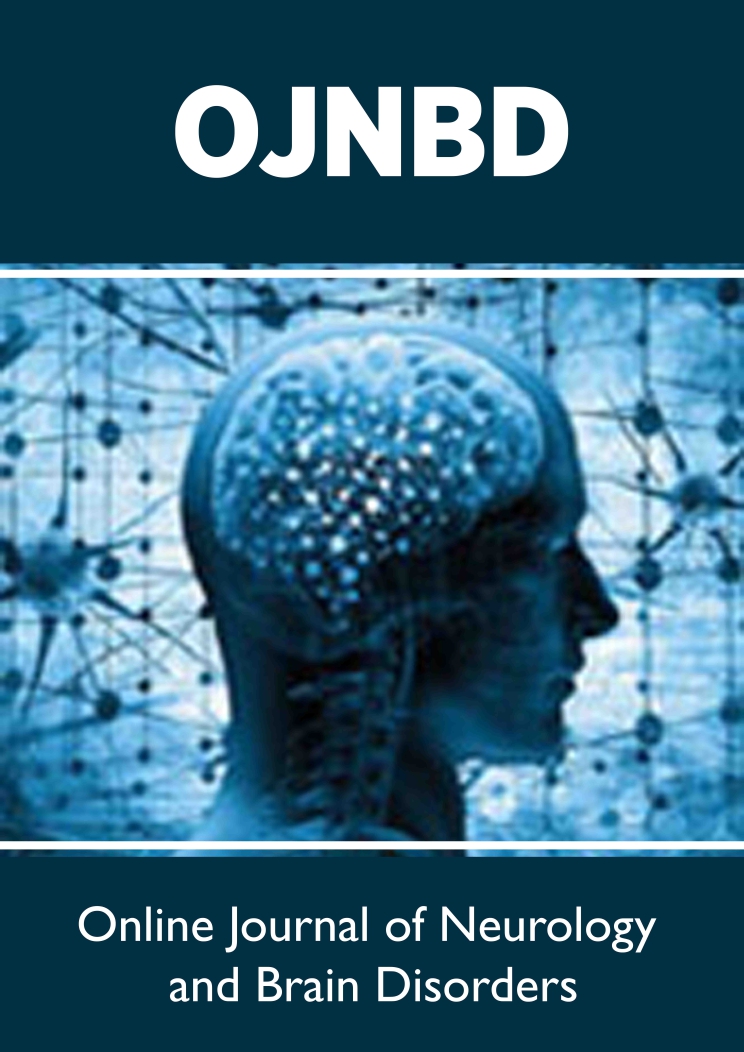
Lupine Publishers Group
Lupine Publishers
Menu
ISSN: 2637-6628
Review Article(ISSN: 2637-6628) 
Sleep is for Life: an Essential Part of Everyday Life Volume 1 - Issue 4
Maheep Bhatnagar* and Reena Chittora
- Department of Zoology, University College of Science, M.L.Sukhadia University, India
Received: June 15, 2018; Published: June 22, 2018
Corresponding author: Maheep Bhatnagar, Department of Zoology, University College of Science, M.L.Sukhadia University, Udaipur-313001, Rajasthan, India
DOI: 10.32474/OJNBD.2018.01.000118
Abstract
Sleep is essential for basic survival as well as for optimal physical and cognitive performance in both human beings and animals. Sleep is a normal human function that is detrimental to sustaining life yet; individuals are affected differently by their sleep schedule. However, the community at large often underestimates sleep and its importance, therefore leading people to not be as concerned with a proper night’s sleep, thereby preventing them from performing at peak efficiency. Sleep plays a vital role in learning and when a person fails to obtain enough sleep the night prior, neurons in the brain might not fire properly, the body becomes out of synch, and it can even lead to accidental physical injuries. As many studies have been conducted, the majority have seemed to come to similar conclusions: a lack of sleep can have detrimental side effects on the human mind and body and by regularly obtaining enough sleep each night; a person can function more efficiently.
Introduction
Sleep is one of the great unsolved mysteries of biology. Actually a large part of the population spends one third of his life asleep, it is therefore not surprising that this phenomenon has always been a great fascination for humanity. It is an important physiological process responsible for the physical, mental and emotional health of a living being. A good sleep is one of the most satisfying human experiences with a role to play in maintaining a good mood and cognitive acuity as well as in promoting physiologic balance and resilience [1]. Sleep is a regular physiological state of natural life and is observed in majority of organisms [2]. Sleep is a naturally persistent reversible state of rest state characterized by reduced or absence of consciousness, suspended sensory activity, and inactivity of voluntary muscles. Sleep is a heightened anabolic state, accentuating the growth and rejuvenation of the immune, nervous, skeletal and muscular systems [3]. It is generated by complex but specific brain neuronal circuitry and heavily influenced by various factors such as biological rhythms, hormonal changes and environmental factors [4,5]. Sleep is an essential element of the human condition, which allows us to perform critical daily functions at peak optimization when obtaining in the correct amount. Sleep is important because it has a determining role in mental and physical health, along with quality of life [6,7]. Sleep, a complex phenomenon, is not merely the result of physical fatigue or decrease in activity; instead it is a complicated behavioural state requiring the integration of several neuronal processes [8].
Sleep Stages
Sleep is a reversible, physiological state with reduced motility. It is subdivided into REM sleep (rapid eye movement sleep, paradoxical sleep, active sleep, D sleep or deep sleep, REMS), and NREM sleep (SWS or slow wave sleep, non-REM sleep, NREMS). REMS is characterized by muscle atonia, activation of several brain areas, including the cortex and physically occurring eye movements, muscle twitches and changes in pulse rate, blood pressure and respiration. NREMS is characterized by body rest [9].
Functions of Sleep
Sleep is a global state, the control mechanisms of which are manifested at every level of biological organization: from genes and intracellular mechanisms to networks of cell populations, and to all central neuronal systems that control movement, arousal, autonomic functions, behaviour and cognition [10]. Sleep boosts up the immune functions has a role in brain maturation and helps in energy conservation. [11,12].Sleep contributes to memory consolidation possibly by enhancing synaptic plasticity [13]. Xie and colleagues reported that during sleep, waste products of brain metabolism are removed from the interstitial space among brain cells where they accumulate this is due to change in the brain’s extracellular space between sleep and waking states [14]. In sleep, metabolic rates decrease and reactive oxygen species generation is reduced allowing restorative processes to take over. It is theorized that sleep helps facilitate the synthesis of molecules that help repair and protect the brain from these harmful elements generated during waking [15].
Though sleep is essential for life, it is difficult to enumerate its functions. Sleep is needed to regenerate certain parts of the body, mainly the brain, so that it may continue to function optimally. One of the important functions of sleep is to promote synaptic plasticity and neuronal recovery for proper brain functioning. Memory consolidation, brain growth and repair are other functions proposed for sleep [16,17]. Various Behavioural and electrophysiological studies have revealed that sleep plays a crucial role in long-term memory storage [18].
It is stated that sleep is essential for restoration and recovery. Energy conservation is one function that is proposed for sleep. It is thought that sleep may help the body conserve energy and other resources that the immune system needs to mount an attack on diseases. Sleep may help to discharge emotions through dreaming [17]. Many experiments have shown that we retain newly acquired knowledge or a newly learned skill more effectively the day after a good night’s sleep and because the hippocampus is known to be heavily involved in encoding memories, REM sleep may thus contribute to learning and memory [19]. The amygdala– hippocampus–medial prefrontal cortex network involved in emotional processing, fear memory and valence consolidation shows strongest activity during REM sleep [20].
Summary
Although sleep occupies approximately a third of the human lifespan, the amount of time humans spend awake has increased over the years. Many neurological diseases from Alzheimer’s to stroke and dementia are associated with sleep disturbances. Lack of sleep could have a causal role, by allowing the byproducts to build up and cause brain damage. Sleep is one of the important needs like oxygen and nutrition for survival. Sleep is a basic drive of nature. Sufficient sleep helps us think more clearly, complete complex tasks better and more consistently and enjoy everyday life more fully. “You probably develop damage if you don’t get your sleep.”
“Sleep that knits up the ravelled sleave of care, The death of each day’s life, sore labour’s bath, Balm of hurt minds, great Nature’s second course, Chief nourisher in life’s feast.”
References
- Chittora R, Jain A, Suhalka P, Sharma C, Jaiswal N, et al. (2015) Sleep deprivation: Neural regulation and consequences. Sleep Biol Rhythms 13(3): 210-218.
- Zeplin H, Siegel JM, Tobler I (2005) Mammalian sleep. In MH Kryger, T Roth, WC Dement. “Principles and practice of sleep medicine”. Philadelphia: WB Saunders Company p. 91-100.
- Stenberg D (2007) Neuroanatomy and neurochemistry of sleep. Cell Mol Life Sci 64(10): 1187-1204.
- Czeisler CA, Gooley JJ (2007) Sleep and Circadian Rhythms in Humans. Cold Spring Harbor Symposia on Quantitative Biology 72(1): 579-597.
- Cardinali DP, Pandi Perumal SR, Niles LP (2008) Melatonin and its receptors: biological function in circadian sleep–wake regulation. In J Monti, SR Pandi Perumal, CM Sinton. Neurochemistry of Sleep and Wakefulness. New York: Cambridge University Press, New York, USA pp. 283-314.
- Chittora R, Jain A, Prasad J, Bhatnagar M (2016) An ameliorative effect of recovery sleep on total sleep deprivation-induced neurodegeneration. Biol Rhythm Res 47(3): 425-436.
- Chittora R, Sharma D, Bhatnagar M (2018) Rehabilitation or Recovery Sleep: A Future Potential Therapeutic Target for Sleep Deprivation. Sleep Disord Ther 7: 2.
- Partinen M, Westermarck T, Atroshi F (2014) Nutrition, Sleep and Sleep Disorders–Relations of Some Food Constituents and Sleep. In Pharmacology and Nutritional Intervention in the Treatment of Disease.
- Vyazovskiy VV, Delogu A (2014) NREM and REM Sleep Complementary Roles in Recovery after Wakefulness. Neuroscientist 20(3): 203-219.
- Pace-Schott EF, Hobson JA (2002) The neurobiology of sleep: genetics, cellular physiology and subcortical networks. Nat Rev Neurosci 3(8): 591-605.
- Rechtschaffen A (1998) Current perspectives on the function of sleep. Perspect Biol Med 41(3): 359-390.
- Graves L, Pack A, Abel T (2001) Sleep and memory: a molecular perspective. Trends Neurosci 24(4): 237-243.
- Madan V, Jha SK (2008) What is sleep and why is it needed. IJLST 1(1): 9-23.
- Xie L, Kang H, Xu Q, ChenMJ, Liao Y, et al. (2013) Sleep drives metabolite clearance from the adult brain. Science 342(6156): 373-377.
- Morrissey MJ, Duntley SP, Anch AM, Nonneman R (2004) Active sleep and its role in the prevention of apoptosis in the developing brain. Me Hypotheses 62(6): 876-879.
- Torabi-Namia M, NasehieM, Zarrindasta MR (2013) Sleep loss and the brain vulnerability to neurodegeneration: behavioral, biochemical and neuro-histopathological observations in a rat model. J Excli 12: 347-372
- Kumar VM (2008) Sleep and sleep disorders. Indian J Chest Dis Allied Sci 50(1): 129-135.
- GravesL, Pack A, Abel T (2001) Sleep and memory: a molecular perspective. Trends Neurosci 24(4): 237-243.
- Pace-Schott EF (2003) Sleep and dreaming: Scientific advances and reconsiderations. Cambridge University Press, England.
- Genzel L, Spoormaker VI, Konrad BN, Dresler M (2015) The role of rapid eye movement sleep for amygdala-related memory processing. Neurobiol Learn Mem 122: 110-121.

Top Editors
-

Mark E Smith
Bio chemistry
University of Texas Medical Branch, USA -

Lawrence A Presley
Department of Criminal Justice
Liberty University, USA -

Thomas W Miller
Department of Psychiatry
University of Kentucky, USA -

Gjumrakch Aliev
Department of Medicine
Gally International Biomedical Research & Consulting LLC, USA -

Christopher Bryant
Department of Urbanisation and Agricultural
Montreal university, USA -

Robert William Frare
Oral & Maxillofacial Pathology
New York University, USA -

Rudolph Modesto Navari
Gastroenterology and Hepatology
University of Alabama, UK -

Andrew Hague
Department of Medicine
Universities of Bradford, UK -

George Gregory Buttigieg
Maltese College of Obstetrics and Gynaecology, Europe -

Chen-Hsiung Yeh
Oncology
Circulogene Theranostics, England -
.png)
Emilio Bucio-Carrillo
Radiation Chemistry
National University of Mexico, USA -
.jpg)
Casey J Grenier
Analytical Chemistry
Wentworth Institute of Technology, USA -
Hany Atalah
Minimally Invasive Surgery
Mercer University school of Medicine, USA -

Abu-Hussein Muhamad
Pediatric Dentistry
University of Athens , Greece

The annual scholar awards from Lupine Publishers honor a selected number Read More...














